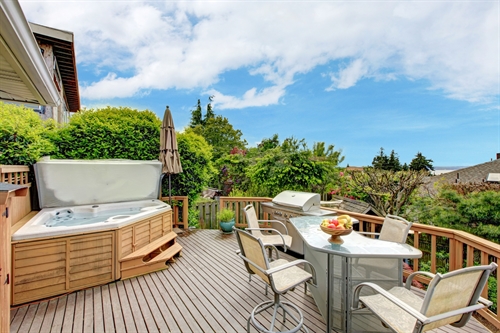Now that so many of us are embracing flexi-working and the work-from-home lifestyle, it’s not unusual to wonder if ‘home’ has to be your usual residence, or even your usual country.
Digital nomads embrace the choices made possible by devices such as laptops, tablets and smart phones, and by improvements in communications technology and shared workspaces. From Ljubljana to Stockholm to the west coast of Ireland, digital nomads are finding their niche.
Use self-storage for valued possessions
When you go travelling, you will not want to take all your possessions with you. Firstly, shipping is expensive, and secondly, having too many possessions makes it difficult to take advantage of the carefree lifestyle promised by digital nomadism. Also, you probably own a lot of things that you will not need, particularly if you are planning to spend time in a climate that is very different to the UK climate.
Some people successfully rely on friends and family to store their home contents while they travel. But for complete peace of mind, self-storage is a better option.
Friends and family may have a change of circumstance that means they can no longer store your domestic goods. Or they may just change their mind and want their space back, so you’ll have to come back to the UK and move your stuff. When you use a storage company, the space will be available for as long as you need it.
Self-storage spaces also win out over outbuildings and garages, particularly if they are climate controlled.
Self-storage can help if you are letting your home while travelling
Many digital nomads use peer-to-peer letting services such as Airbnb for their accommodation. So you might find that it it’s a natural step to use these platforms to boost your income by letting your own property.
Hosts will often use self-storage to store belongings while they are abroad, particularly items that are better kept away from their guests, such as sentimental items, artwork or musical instruments.
Here are some of our other tips for Airbnb hosts.
How do travellers cost up self-storage?
To cost up self-storage, work out how much space you need. Many storage companies have calculators to help you do this.
Then consider how long you are going to need the storage facilities. If you commit to six months or a year of storage, you may find you can get a better deal than if you pay month by month.
Consider whether you need any special facilities for self-storage during your time as a digital nomad. For example, if you are storing musical instruments or antiques, you may want climate-controlled storage.
Next, get some quotes from a few self-storage companies. Self-storage costs vary around the country, and as a traveller, you are, perhaps, not tied to a location. So it’s worth looking further afield if you live in a pricy area.
Another factor to consider when pricing up self-storage is insurance. Once you move your domestic goods out of your home, they are not covered by your contents insurance. Instead, you will need self-storage insurance. This is mandatory at all reputable storage companies. It’s worth shopping around for self-storage insurance by getting quotes from several providers – get one from Store and Insure to start you off.
We wish you all the best in your adventures – whether it’s Thailand, Croatia or the Cornish coast, let the good times roll.


